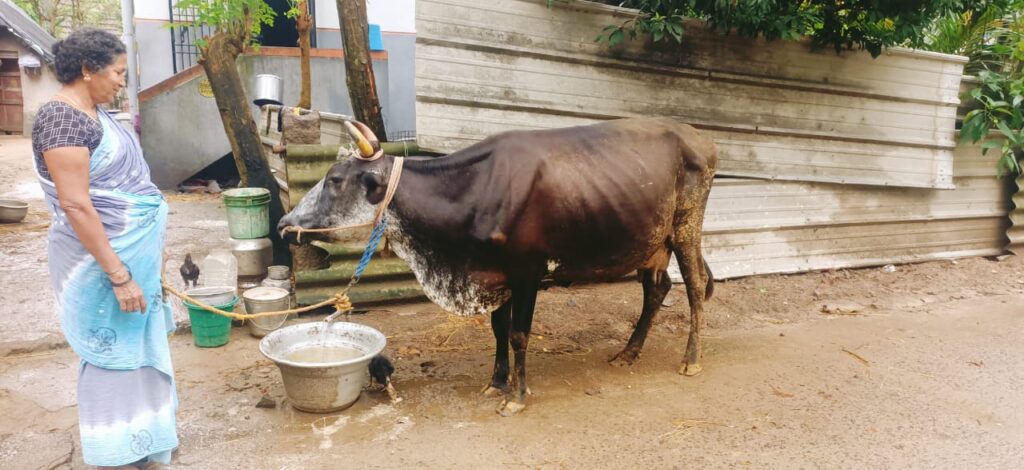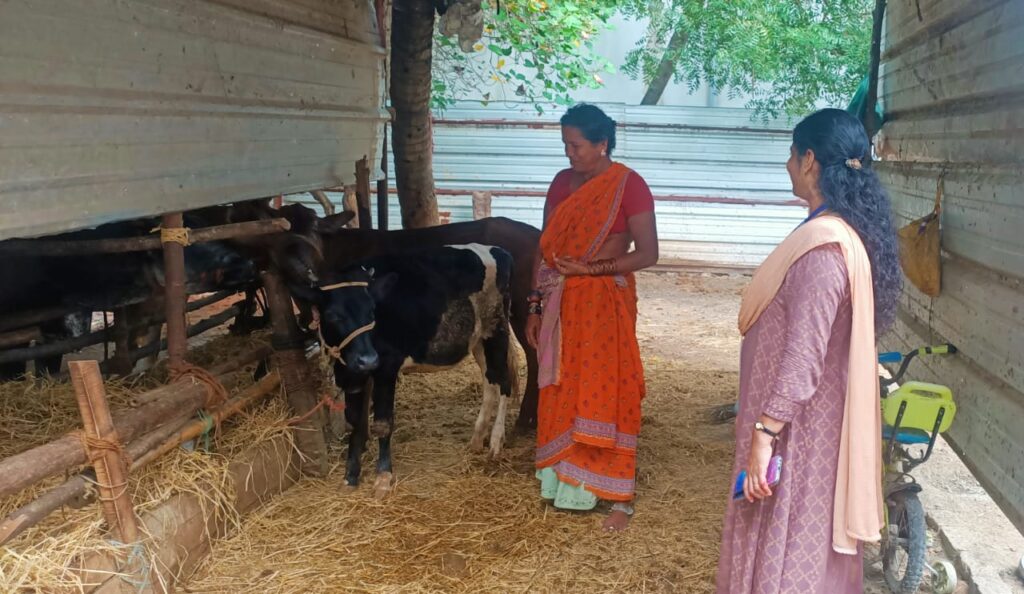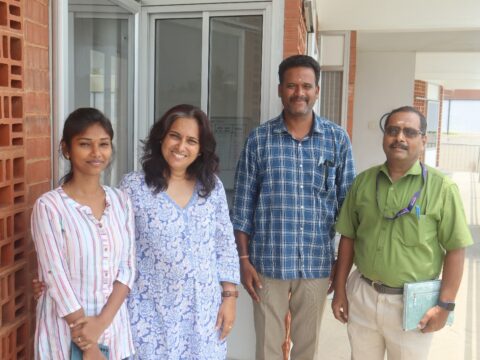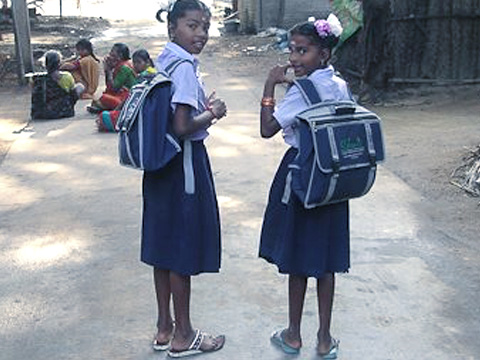Penned By Board Member Ms. Alo Pal
Umapathy and I sit on the verandah of the Sharana Social Centre at Angalakuppam village. She’s 54,
and the lines on her face tell a story that belies her compulsive funny disposition.
– How did your parents fish in the backwaters? Did they use a fishing rod? Or was it nets?
– Bare hands, she replies, amused at my expression
– Meaning?
– We could not afford those things, they used to dip their hands in run their hands (gestures)
and catch
I pause before I jot this down, my writing slows as I try to imagine a family of 11, 9 siblings, living off
this income. The stone age was defined by primitive hunting tools, including the harpoon, that is
what I taught my students.
– Why is your name Umapathy? Isn’t that a masculine name?
– Why they named me that I don’t know but I am like that only. The headmaster beat me at
school and I ran away and never went back. I started to help my mother at the age of ten.
I used to go to the fields where she went to work with other women in the village. At 16 got
married.
– 16? Why?
– What to do, I fell in love and got married.
– And then?
– Then what, my daughter was born when I was 16 and my son when I was 18
– Your husband?
– O he was with his drink and abusive. He was like this even before marriage.
And so, knowing that she could not afford to have another child she lied to her husband about a pain
in her stomach, after the birth of her daughter She lived with her sister for six months and got
“family planning” done.
– When I came back, I told my husband, he beat me
– What? Why? Did he want more children? But you also had that coveted son, did he want
more sons?
– No, no, it is like that only. But later he accepted.
By now I realized there was no point at all to look for sorrow, bitterness, regret, baggage, angst, or
pathos in the eyes of Umapathy. Whenever I did that, or for my satisfaction, I wanted to see a spark of
the resilient phoenix rising from the ashes attitude in her, all I got was an indulgent smile and a
“life’s like that” shrug.
She used to carry her children to the fields where she worked as an agricultural laborer. She made a
swing with a saree tied to tree branches in which she cradled her daughter while she worked. Her
parents were among the first few who settled in Angalakuppam decades ago. Also called Aathu
Manal, meaning river sand, Angalakuppam still isn’t recognized as a proper village. Even
today it has a partially acknowledged existence with water, electricity, and roads provided decades
after the first settlements but not a single govt establishment – no school, no primary health care
center, nothing. When her daughter was 6 and her son 4 Sharana adopted the village and her
daughter was sent to school under our Collective Sponsorship programme and her son went to the
Balwadi in the neighboring village.
Umapathi was among the first batch of ladies who received loans under Sharana’s microcredit
program with which she bought a cow. That loan and the added income slowly ensured a steady increase in herd size and income. Slowly food on the table in her house became more frequent and
healthier. Sharana ensured her daughter completed her 12th. She’s now married and lives in
Chennai. Her son didn’t clear his twelfth so Sharana part sponsored his diploma course in ITI and
today he’s a productive young man. “That two thousand Sharana paid for my son every month was
worth two lakhs to me”, the first time that morning emotion cracked Umapathi’s voice that morning.

Umapathi feeding her cow

Umapathi’s little cow shed
In 2020 she received a loan of fifteen thousand under our Social Entrepreneurship Programme which
contributed to her taking a piece of land in lease where she grows vegetables and greens on a profit.
Her produce is sourced directly by a wholesaler thereby cutting the middleman out and making this
venture profitable.
Today she is debt-free, her children are well-settled, her hut is now a pukka house and she tends to
her animals and her farm and looks after her granddaughter who attends the Sharana crèche at
Angalakuppam.
– Happy now?
– Yes, today my life is good, but I have only one complaint
– What is that
– I haven’t seen Amma (Rajkala, my dear friend and founder of Sharana) for too long
So I called Rajkala and gave Umapathi my phone, and for the first time that morning, despite the life
of extreme poverty, struggle hardship she had recounted to me with sardonic humor that past
hour she had tears streaming down her face for the first time.
– I don’t need anything anymore from you Amma, all I need is to see you more often. Come to
the village more.












